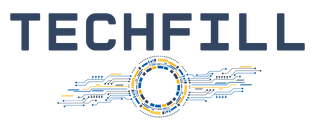Have you ever wondered how the mysterious world of quantum computing comes to life? It’s all about the language—or rather, the programming languages that make these machines tick.
In the realm of quantum computing, traditional programming just won’t cut it. You need something more specialized and advanced. That’s where quantum programming languages come into play, each designed to tap into the unique powers of quantum mechanics. Imagine being able to solve complex problems at lightning speed or unlocking new possibilities in fields like cryptography, chemistry, and artificial intelligence.
These are not just dreams; they’re realities powered by quantum programming. Curious to know which languages are leading this revolution? Stay with us as we dive deep into the top quantum programming languages, helping you understand how you can harness their power to transform your world.
Quantum Computing Basics
Quantum computing is different from normal computing. It uses qubits, not bits. Qubits can be 0, 1, or bothat the same time. This is called superposition. Quantum computers solve problems fasterthan regular computers.
Regular computers use bits. They are only 0 or 1. Quantum computers are powerful because they use entanglement. Entanglement means qubits are linked. Changing one qubit can change another. This makes quantum computing special.
Quantum computing is not for every problem. It is best for complex calculations. Scientists and researchers use it for big tasks. It needs special programs and languages. These languages help control qubits. Learning them is important for quantum computing.
Why Quantum Programming Matters
Quantum programming is important for the future. It deals with tiny parts called qubits. Qubits can be in many states at once. This makes them powerful. They solve problems faster than regular computers. Scientists use quantum programming for big tasks. It helps in medicine, space, and weather.
Many companies invest in quantum technology. They know its value. Quantum computersmight change technology. They can improve artificial intelligence. They can make safer online systems. Learning quantum programming is a smart choice. It prepares us for new challenges.
Leading Quantum Languages
Qiskit is a popular choice for quantum computingprojects. It helps users work with quantum circuitsand algorithms. This language is open-source and free to use. It offers tools for quantum simulations. Many researchers use Qiskit for their experiments.
Cirq is designed for noisy quantum computers. It is useful for building and testing quantum algorithms. Cirq provides a simple way to create quantum programs. Many developers find Cirq easy to learn. It supports Google’s quantum machines.
Microsoft offers the Quantum Development Kit. This kit includes the Qlanguage. Qhelps in building quantum applications. The kit has libraries and samples for learning. It supports quantum simulations on local computers.
Forest is a framework for quantum computingby Rigetti. It includes libraries for quantum programming. Developers can use Forest to access quantum hardware. It provides tools for creating quantum circuits. Forest supports hybrid quantum-classical computing.
Qiskit Features
Qiskit has a strong open source community. Many people help improve it. This makes it better for everyone. People share their ideas and work together. Learning is fun with friends. Anyone can join and contribute. The community is very welcoming. This helps new users feel comfortable. Sharing knowledge is key here.
IBM Quantum Experience is a platform for learningquantum computing. It offers tools and resources. You can run quantum programs here. It is free to use. This platform is for everyone. Access is simple and easy. Learning is supported by many resources. Users get to try real quantum computers.
Quantum circuits are like puzzles. They are fun to build. Qiskit helps youcreate these circuits. You can make them step by step. This is how we learn about quantum computing. Circuits help us solve problems. They are a key part of programming. Building circuits is exciting and rewarding.
Cirq Capabilities
Cirq is made by Google for quantum computers. It helps do complex calculations fast. This is called Quantum Advantage. Cirq is good at using new quantum technology. It makes tough problems easier to solve. Many people use it to explore new ideas.
Cirq can simulate quantum circuits. This means it mimics quantum actions on regular computers. Testing ideas is easy with Cirq. It helps see how circuits work without needing a real quantum computer. Cirq is useful for students and researchers.
Cirq works well with machine learning tools. This helps build smart programs. Combining quantum computing with machine learning is a big step. It can solve problems that are hard for regular computers. Cirq helps in creating better and faster solutions.
Quantum Development Kit Insights
Microsoft is a big name in quantum computing. They have a special tool called the Quantum Development Kit. This kit helps people write programs for quantum computers. It includes a language called Q. Qis made for quantum tasks. It works well with other Microsoft tools. These tools help in running and testing quantum programs. People can learn more about quantum computing with Microsoft’s help.
QLanguage is a new tool for quantum computing. It is simple and easy to learn. Many people use it to explore quantum ideas. It supports basic quantum operations. This helps in understanding quantum concepts better. Users can try small experiments with QLanguage.
Libraries make coding easier. Quantum computing libraries have ready-made codes. These codes help in building quantum applications faster. Some libraries focus on specific quantum tasks. Others offer a wide range of tools. Libraries save time and effort for developers. They are very useful for learning and experimenting.
Forest Ecosystem
Rigetti Computing is a big name in quantum computers. They use a language called PyQuil. PyQuil helps write programs for quantum computers. It works with another language called Quil. Quil is used to give instructions to the quantum machine. Together, they make a strong team. PyQuil and Quil help scientists solve complex problems. These problems are too hard for regular computers.
Quantum computers are different from regular ones. They need special languages. Hybrid programmingmixes quantum and classical computing. This makes it easier to solve problems. Regular computers can handle simple tasks. Quantum computers take on hard tasks. Together, they can do amazing things. This combination is very useful for many jobs. It helps in science, finance, and health care.
Comparing Quantum Languages
Exploring the world of quantum programming languages reveals diverse options like Q, Quipper, and Cirq. Each language offers unique features tailored for quantum computing tasks. Understanding these languages helps in advancing quantum research and development.
Performance And Scalability
Quantum languages show different levels of performance. Some are faster. Others handle complex tasks better. Scalability matters too. A language should grow with the project. Large projects need scalable solutions. Small projects have less need for scalability. Choosing the right language impacts speed and growth.
Ease Of Use
Some quantum languages are easyto learn. Others are more complex. Beginners prefer simple languages. Experts might choose complex ones. Syntax and commands affect ease of use. Clear instructions help new programmers. Hard languages might have steep learning curves. Simple languages make coding fun.
Community And Support
Strong community offers good support. Developers can ask questions. Experienced users provide answers. Community size impacts help quality. Large communities offer more resources. Small communities may lack detailed help. Support includes forums and tutorials. Good support makes programming easier.
Future Of Quantum Programming
Quantum programming brings many challenges. Understanding the complex math is hard. Building stable quantum computers is also tough. Yet, there are exciting innovations. New algorithms make quantum computers useful. Scientists work hard to solve problems. They aim to create better quantum tools. These tools help in scientific research. They also help in making powerful computers.
Companies are starting to use quantum technology. Big tech firms invest in research. They want to create new quantum products. Banks and hospitals can benefit too. Secure communication is one use. Fast data processing is another. Industry adoption will grow as technology improves. More businesses will find value in quantum computing.
Learning about quantum programming is important. Universities offer special courses now. Online platforms provide free tutorials. Books and articles help too. Students can join workshops. They learn from experts in the field. Hands-on experience is vital for understanding. More learning resources become available each year.

Frequently Asked Questions
What Is Quantum Programming?
Quantum programming involves using specialized languages to write algorithms for quantum computers. These languages cater to quantum computing’s unique properties, enabling developers to harness its power. By understanding quantum programming, developers can create applications that solve complex problems faster than classical computers.
Which Languages Are Best For Quantum Computing?
Popular quantum programming languages include Qiskit, Cirq, and Q. Qiskit is favored for IBM quantum systems, Cirq suits Google’s quantum computers, and Qworks well with Microsoft’s quantum development kit. Each language has its strengths, making them suitable for different quantum computing tasks.
How Does Q Differ From Classical Languages?
Qis designed specifically for quantum computing, providing features not found in classical languages. It allows developers to define quantum operations and work with qubits efficiently. Its syntax and structure are tailored to quantum algorithms, facilitating seamless integration with Microsoft’s quantum tools.
Can Beginners Learn Quantum Programming?
Yes, beginners can learn quantum programming by starting with basic concepts and using beginner-friendly languages like Qiskit. Many online resources, tutorials, and courses are available to help beginners grasp quantum computing fundamentals and gradually advance to more complex topics.
Conclusion
Quantum programming languages are evolving. Each offers unique advantages. Understanding them deepens your grasp of quantum computing. Python leads with simplicity and flexibility. Qintegrates well with Microsoft tools. Julia shines with performance in mathematical computations. Quipper is powerful for circuit design.
Every language has strengths. Explore them to find your best fit. Practice will enhance your skills. Stay updated with new developments. Quantum programming is a growing field. Embrace the future by learning today. These languages are stepping stones. They pave the way for innovation.
Dive into quantum programming. Your journey begins now.
Read More:
- Network Automation Tools ROI: Boosting Efficiency & Savings
- Noise‑Cancelling Earbuds Battery Life: Maximize Your Usage
- Ci/Cd Pipeline Tools Comparison: Boost Your DevOps Efficiency
- Serverless Vs Containerized Workloads: A Comparative Guide
- Vr Content Creation Tools 2025: Revolutionize Your Creations
- Best Gaming PC Build under $1500: Ultimate Performance
- Best Cross‑Platform Mobile Frameworks 2025: Top Picks
- Javascript Frameworks Benchmark 2025: Speed & Performance

